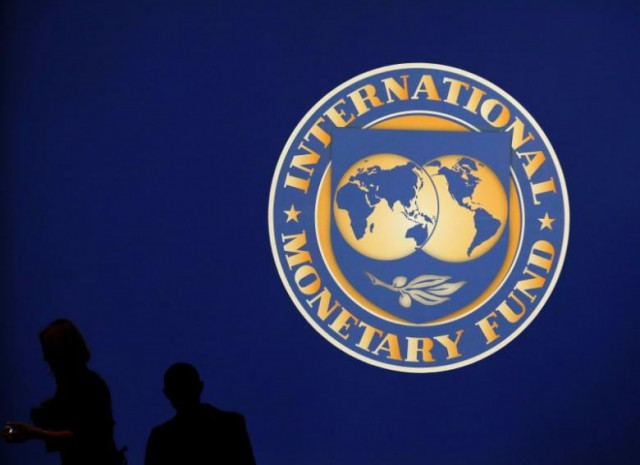IMF says Pakistan can manage without its support
Believes country needs early policy action to tackle external, fiscal imbalances

PHOTO: REUTERS
“Despite a strengthening growth momentum, Pakistan’s imbalances on both external and fiscal fronts increased in the last fiscal year and require attention of the policymakers,” said Tokhir Mirzoev, IMF Resident Representative in Pakistan, while talking to The Express Tribune.
“Economic policies take time to impact the economy. Therefore, taking corrective policy action early is important to address these rising challenges,” advised the IMF representative. This is the first response of the IMF since the external sector has started unraveling.
IMF says Pakistan’s hard-won economic stability at stake
To a question about the need for another IMF programme, Mirzoev said “Pakistan still has sizeable external buffers which need to be preserved with the right policy mix aimed at correcting both external and fiscal imbalances. With sufficient policy effort, Pakistan can address these challenges without the IMF.”
The country booked record current account and budget deficits in the last fiscal year 2016-17, giving rise to speculations that it may have to seek another IMF programme.
Pakistan recorded $12.1 billion worth of current account deficit in FY17 against official projection of $4.5 billion. Budget deficit also widened to Rs1.863 trillion or 5.8% of gross domestic product against the target of 3.8%.
With respect to the fiscal situation, Mirzoev said “significant effort will be needed to meet this fiscal year’s ambitious targets, especially with respect to revenue mobilisation. At the same time, policymakers have to find solutions to shortcomings of the fiscal federalism system. As highlighted during last Article IV consultations, it is unbalanced and prone to shocks.”
One of the reasons behind the record Rs1.863-trillion budget deficit was extra spending of Rs163.2 billion by the provinces. The federal government had hoped that the provinces would generate a cash surplus of Rs339 billion to keep the overall budget deficit within limits.
“The challenges facing Pakistan’s economy are significant,” Mirzoev said. “Without a supportive policy mix, the current fiscal year could be difficult on both external as well as fiscal fronts.”
Mirzoev also struck a positive note, saying “not everything is going wrong in the economy. The economic growth has been strong and is picking up. The challenge is to make this growth more balanced, so that it involves more exports and does not overburden the balance of payments.”
He said August also brought good news for the economy. “Stronger exports, remittances and foreign direct investment on the one hand and some moderation in import growth on the other have brought some relief to the balance of payments. Tax revenue outcome was also particularly encouraging.”
“It is too early to tell whether the month of August was an exception or a sign of normalisation,” he said. “But policies need not wait to see what happens. A supportive policy framework to tackle both fiscal as well as external sectors is still needed. Early rebalancing of policies will help address potential challenges down the road in a timely manner.”
IMF data bloats Pakistan forex reserves by $3bn
The State Bank of Pakistan on Tuesday released the balance of payments position that showed $2.6 billion in current account deficit during July-August FY17, higher by 102% or $1.31 billion over the same period of previous fiscal year.
In order to contain the growing trade deficit, the federal government is considering increasing customs duty on imported goods. However, Mirzoev was sceptical when asked about IMF’s views.
“Using administrative measures to correct the external imbalances is rarely effective. Such measures tend to have a limited impact and often produce significant distortions in the economy. Most importantly, administrative measures do not make an economy more competitive in the long run,” he said.
Published in The Express Tribune, September 20th, 2017.
Like Business on Facebook, follow @TribuneBiz on Twitter to stay informed and join in the conversation.



















COMMENTS
Comments are moderated and generally will be posted if they are on-topic and not abusive.
For more information, please see our Comments FAQ